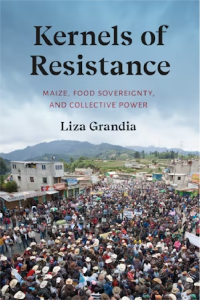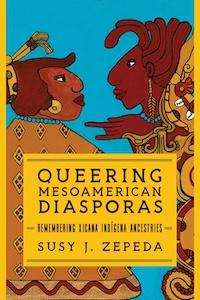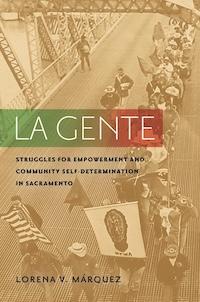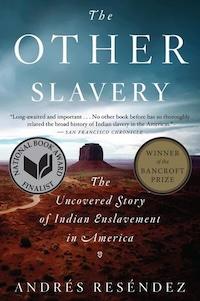
Welcome to Books of the Month, where once a month, L&S staff select works from our Bookshelf of UC Davis authors. Our November 2024 selections are in honor of National Native American Heritage Month.
Explore narratives from local historic protest movements to the unearthing of previously lost traditions. Take some time this month to read one of our selections and hopefully learn something new!
We should take a moment to acknowledge the land on which we are gathered. For thousands of years, this land has been the home of Patwin people. Today, there are three federally recognized Patwin tribes: Cachil DeHe Band of Wintun Indians of the Colusa Indian Community, Kletsel Dehe Wintun Nation, and Yocha Dehe Wintun Nation.
The Patwin people have remained committed to the stewardship of this land over many centuries. It has been cherished and protected, as elders have instructed the young through generations. We are honored and grateful to be here today on their traditional lands.
Happy reading!

Kernels of Resistance: Maize, Food Sovereignty, and Collective Power, 2024
by Liza Grandia, Department of Native American Studies
In Kernels of Resistance, Liza Grandia chronicles how diverse coalitions in Mexico and Guatemala have defended their sacred maize against corporate threats to privatize it. Rather than just "voting with their forks," like the consumer-driven U.S. food movement, Mesoamerican farmers and their allies have voted with their feet through direct action. In a world of interconnected trade, their victories chart a path that other food movements might follow. They also show how everyday people can demand better regulatory protections for environmental health and forge more climate-resilient agricultural systems with native seed saving.

Queering Mesoamerican Diasporas, 2024
by Susy J. Zepeda, Department of Chicana/o Studies
In Queering Mesoamerican Diasporas: Remembering Xicana Indígena Ancestries, Susy J. Zepeda highlights the often overlooked yet intertwined legacies of Chicana feminisms and queer decolonial theory through the work of select queer Indígena cultural producers and thinkers

American Purgatory: Prison Imperialism and the Rise of Mass Incarceration, 2024
by Benjamin Weber, Department of African American and African Studies
American Purgatory tells the story of American incarceration, from its roots in racial slavery and colonialism to the present day, through the stories of the people who built resistance and freedom movements within those confines. In the book, stories of survival and resistance take many forms. These stories show how criminal law and imprisonment have been used as tools to control and subdue groups who stand in political opposition.

The Art of Memory: An Ethnographer's Journey, 2020
by Stefano Varese, Department of Native American Studies
In The Art of Memory: An Ethnographer's Journey, Stefano Varese combines personal and family recollections with incisive accounts of academic, political and institutional experiences. The memoir offers a remarkable account of his life as a foremost Latin American ethnographer and a leading expert in Indigenous cultures, peoples and cosmologies.

La Gente: Struggles of Empowerment and Community Self-Determination in Sacramento, 2020
By Lorena Marquez, Department of Chicana/o Studies
La Gente traces the rise of the Chicana/o Movement in Sacramento and the role of everyday people in galvanizing a collective to seek lasting and transformative change during the 1960s and 1970s. In their efforts to be self-determined, la gente contested multiple forms of oppression at school, at work sites and in their communities.

Upstream: Trust Lands and Power on the Feather River, 2018
by Beth Rose Middleton Manning, Department of Native American Studies
In Upstream: Trust Land and Power on the Feather River, Beth Rose Middleton Manning examines how native land allotments in California were taken over for various hydroelectric power projects with a focus on the Feather River and Native American resistance to such projects.

The Other Slavery: The Uncovered Story of Indian Enslavement in America, 2017
by Andrés Reséndez, Department of History
Since the time of Columbus, Indian slavery was illegal in much of the American continent. Yet, as Andrés Reséndez reveals, it was practiced for centuries as an open secret. There was no abolitionist movement to protect the tens of thousands of Natives who were kidnapped and enslaved by the conquistadors. Andrés Reséndez builds the incisive case through testimonials and other evidence, to reveal a missing key piece of American history.

God's Red Son: The Ghost Dance Religion and the Making of Modern America, 2017
by Louis Warren, Department of History
In 1890, on Indian reservations across the West, followers of a new religion danced in circles until they collapsed into trances. In an attempt to suppress this new faith, the U.S. Army killed over 200 Lakota Sioux at Wounded Knee Creek. In God’s Red Son, Louis Warren offers a startling new view of the religion known as the Ghost Dance, from its origins in the visions of a Northern Paiute named Wovoka to the tragedy in South Dakota – and how its teachings helped followers retain their identity and reshape the modern world.
YOU MAY ALSO LIKE THESE STORIES

Christina Thomas Works to Preserve Her Native Culture and LanguageOpen configuration options
From a first-generation college student to a doctoral candidate and Fulbright Graduate Scholar, Christina Dawa Kutsmana Thomas has become a role model for other "little rez kids." She's working to save her Indigenous language as well as pass on her family's culture to younger generations.

October's Books of the Month
Welcome to Books of the Month, where once a month, College of Letters and Science staff select works from our Bookshelf of entirely UC Davis authors. Start the quarter off strong by adding these staff picks to your reading list in honor of Hispanic Heritage Month.
